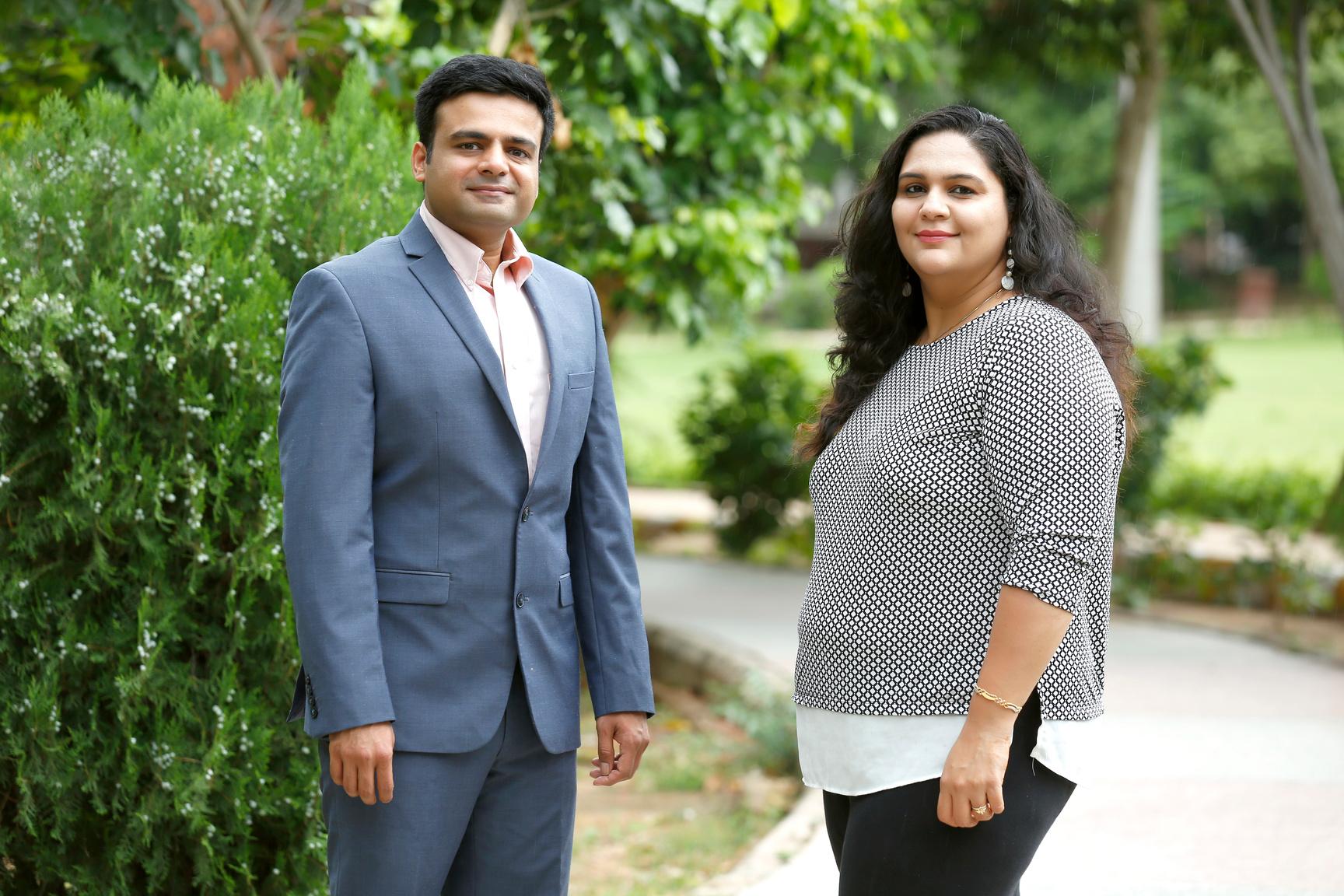




Thank you for downloading our e-book. Get started with looking deeper into the mistakes you might be making with Hashimoto's

Dr. Anshul Gupta MD, FAIHM, IFMCP is Board-Certified Family Medicine Physician, with advanced certification in Functional Medicine, Peptide therapy, and also a fellowship trained in Integrative Medicine.
He has worked at the prestigious Cleveland Clinic Department of Functional Medicine as a staff physician alongside Dr. Mark Hyman. He believes in empowering his patients to take control of their health and partners with them in their healing journey.
He now specializes as a thyroid functional medicine doctor and helps people reverse their unresolved symptoms of thyroid dysfunction.
Conventional medicine doesn’t have all the answers for a vast majority of patients suffering from chronic diseases and that’s where a Functional Medicine model can be helpful.
As a functional and integrative medicine expert, Dr Gupta is on a mission to help more than 1 million people to reclaim their health back
Anshul Gupta MD, FAIHM, IFMCP is one of the very few thyroid functional medicine doctors who are providing consultation to people to help them with unresolved symptoms due to thyroid dysfunction. He tries to work with his patients to work on their core imbalances by developing an individualized plan which focuses on a specific diet plan, movement, and stress reduction.
Hashimoto’s is a condition where the antibodies from the immune system attack a critical enzyme (Thyroid Peroxidase) that is vital to the production of thyroid hormones.
This inhibits the production of Thyroid Hormones and results in Hypothyroidism.
Hypothyroidism is a condition where the Thyroid gland becomes underactive and fails to produce the required Thyroid hormones. This could result in elevated levels of TSH and lower levels of T3 and T4 hormones.
The conventional way of treating Hashimoto is to prescribe Levothyroxine While this might provide relief in the short run, the autoimmune condition continues to reign damage the thyroid gland.
Diet can play an important role in managing the autoimmune condition as also other factors such as Lifestyle changes, stress management, supplements, and better sleep hygiene.
There is a lot of information freely available on the natural interventions to heal and reverse Hashimoto’s and people today are well-informed and equipped to take matters into their own hands.
While it works for some people, others are left wondering where they’re going wrong. Oftentimes there’s a lot of frustration around having made all the recommendations by books, articles, or videos and yet finding dismal or no results
While there is a lot of information available, there’s also a lot of misinformation out there. It could be quite possible that people are not following the right source of information.
The lack of progress could also be attributed to poor interpretation of the information available, addressing only one area of health and not having a holistic intervention and so one.
Following are the 10 common mistakes that people with Hashimoto’s make while trying to heal themselves naturally causing them to find poor results or no results at all.
We’ve put together this list so you can avoid these pitfalls in your journey against Hashimoto’s or any other thyroid-related disorders
There’s a common notion that gluten only needs to be avoided if someone has been diagnosed with celiac disease but that is sadly not the case.
Gluten has been cited as a trigger food in the development of several auto-immune conditions including Hashimoto’s Thyroiditis People with celiac disease are allergic to gluten which means that the body produces a lot of antibodies against the protein molecule in gluten and in the process destroys the gut and the body.
But the absence of celiac disease does not mean that the coast is clear for the consumption of gluten.

There’s another condition called Gluten Sensitivity where the reaction to gluten by the immune system is delayed and gentle.
And so over a period of time, the gut lining is affected resulting in a condition called leaky gut which leads to several autoimmune conditions. And so if you have Hashimoto’s, it is best advised to avoid gluten
Weight gain is a common symptom of Hashimoto’s and so most people embark on a calorie-deficit diet to combat that without really understanding what is contributing to the weight gain.
And typically the focus is on the calorie count without little or no regard for the source of the calorie. And we all know that all calories are not made equal. A calorie from sugar is not the same as a calorie from let's say an Apple.
Being on a low-calorie diet reduces the amount of free T3 and increases the amount of reverse T3 which inhibits the cell from taking in T3. And so a healthy diet is one of the cornerstones of healing a thyroid condition or any disorder for that matter. A good diet for people with Hashimoto’s should be nutrient dense

A recommendation is to nourish the body with a balanced and nutrientdense whole foods diet Foods such as vegetables, fruits, nuts & seeds, good fats, and proteins are rich in macro and micronutrients that are vital and essential in helping to remedy the imbalances in the body and in the process restore the thyroid gland.
When thinking of a good diet plan for Hashimoto’s, think of good fats, good proteins, and good fiber. Focus on the quality of the food rather than the calorie of food
Several people start taking a lot of supplements when they hear things on the internet, what they don't know is that several of these supplements can actually harm thyroid patients.
Like for example biotin is common supplement thyroid patients take for hair issues, what they don't know is that high biotin doses can interfere with thyroid lab tests and show abnormal levels of thyroid hormones in the blood.
Moringa is another such supplement that several people take, and that can interfere with the conversion of T4 to T3.
So it is very important to work with a Functional Medicine practitioner who has expertise in thyroid disorders.


Yes, several people who are taking levothyroxine or any other natural thyroid medicine are not taking it appropriately
Thyroid medicines have to be taken empty stomach so that the absorption happens properly. Even having coffee or tea with thyroid medicine or even 1 hour close to taking your thyroid medicine can interfere with the absorption.
The common tendency is for people to treat the symptoms such as weight gain, hair loss, etc, and not really focus on the root causes of those symptoms.
Most thyroid issues can be put down to chronic inflammation and no attention is paid to this silent perpetrator of health disorders. While inflammation is an essential part of the body’s defense mechanism, chronic inflammation can be harmful as it leads to tissue damage and contributes to the development and progression of various diseases and autoimmune conditions.

Thyroid medications such as Levothyroxine bridge the gap in the production of thyroid hormones but do not address the underlying inflammation that is actually contributing to the condition
Tackling inflammation requires a multi-fold approach of an antiinflammatory diet, supplements such as curcumin, fish oil, etc, working on sleep, stress, and overall switching to an anti-inflammatory lifestyle.

Goitrogens are substances that when over-consumed can have harmful effects on the thyroid gland.
It’s found in foods like cruciferous vegetables like cauliflower, broccoli, Brussels sprouts, cabbage, turnips, and many more. It is worth understanding that goitrogens tend to inhibit the uptake of iodine, but there is no conclusive study to prove that.
But there are recent studies supporting that an anti-inflammatory diet where all green leafy vegetables were part of the diet improved thyroid functioning and lowered thyroid antibodies.
Goitrogenic vegetables are rich in crucial vitamins, minerals and also antioxidants and removing them from the diet would mean depriving the body of these important micronutrients.
Iodine deficiency is one of the common reasons for hypothyroidism and it could worsen the effects of Hashimoto’s The natural tendency then is to increase the intake of iodine and rightly so.
But excess consumption of iodine especially in supplements can result in the formation of Goiter and Thyroid nodules causing the thyroid gland to swell and also shown in research studies to cause Hashimoto’s also. If you’re taking iodine supplements, it’s important to work with a Functional Medicine practitioner to identify the right dose for you because most of the supplements do not label the dosage correctly.
The body goes through tremendous stress, not just psychological but also physical because in the absence of thyroid hormones, the body is not functioning at an optimal level and this causes physical stress on the body and results in fatigue.
The adrenal glands are responsible for secreting the stress hormone, cortisol also takes a beating in the process.
And so the natural tendency is to not exercise and be engaged in movement. But the key to combating an underperforming thyroid and adrenal glands is to address the underlying stress through gentle exercise and movement.

It is key to have a workout schedule that could include yoga, meditation, walking, cardio, strength, relaxation techniques, and so on.
If you’re engaged in intense workouts, it’s important to do it under the guidance of a certified fitness coach so as to not to further stress the body.

In a world that is driven by productivity, sleep is one of the most overlooked components of well-being. It is often perceived as a sign of laziness or luxury
Additionally, many people may not directly correlate their symptoms or problems to a lack of sleep. But the truth is that sleep is not only crucial for overall health and wellbeing, but it is especially important for people with Hashimoto's.
Lack of sleep can increase inflammation, impair immune function, and worsen fatigue, which is a common symptom of Hashimoto's.
Sleep has countless benefits It helps manage stress and inflammation which are huge underlying causes of Hashimoto’s.
It helps improve mood and cognitive function and so much more. It is extremely important to develop good sleep hygiene as it forms the bedrock of any intervention.
The body heals when it’s at rest

The thyroid gland produces mostly T4 hormones and a small amount of T3 hormones
T3 is the active and usable form of thyroid hormones and so through further synthesis, T4 is converted to T3 to be used by the cells for metabolism.
In people with Hypothyroidism, typically TSH levels are high and T4 and T3 levels are low
And so Levothyroxine is prescribed to make up for the deficiency which only provides the body with T4 hormones.
So if there is a glitch in the conversion of T4 to T3, then the body is essentially deprived of T3 hormones which is what is of use ultimately
To counter this, you could request a separate T3 medication or take a desiccated form of thyroid hormone which contains both T3 and T4.
The key is to get adequate T4 and T3 hormones into the system.
Managing Hashimoto’s can be a challenging and often frustrating task and it is easy to fall into one or more of the traps mentioned above.
While Diet is a cornerstone in treating Hashimoto’s Thyroiditis, it is important to figure out the right diet that is individualized to your symptoms and needs. Also, understanding the specific needs of thyroid patients, their supplements need, and what is the right medicine for them is also important and can make a huge difference in how you feel
It is always a better bet to work with a Functional Medicine Practitioner, who specializes in thyroid disorders so you are getting the right advice. Another crucial point to bear in mind is that in most cases dietary changes alone are never enough.
There has to be a more detailed approach that involves addressing multiple root causes that are causing your thyroid disorder like toxins, infections, gut infections, parasites, etc.